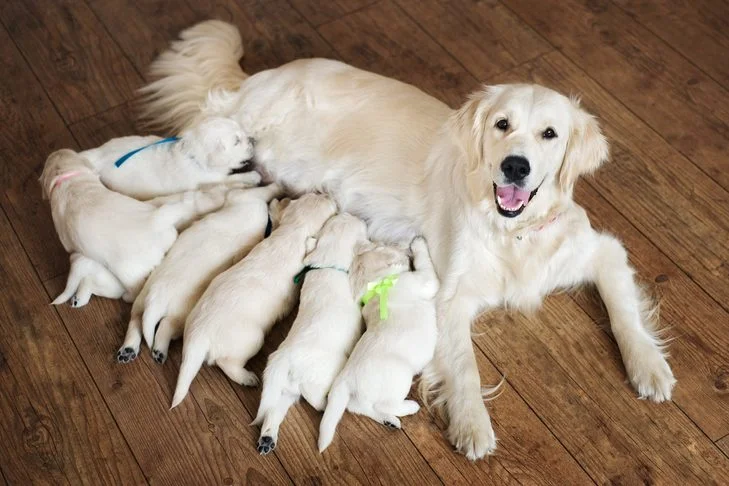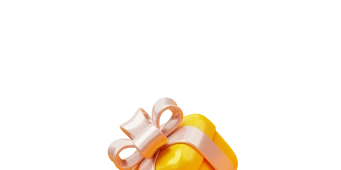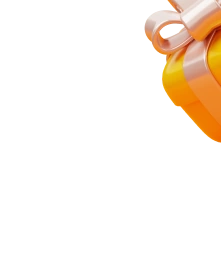Why Does My Dog Separate One Puppy from the Rest?
Bringing a new litter of adorable puppies into the world is an exciting and joyous time for any dog owner. However, it can be puzzling and concerning when you notice that your dog is separating one puppy from the rest of the litter. This behavior may raise questions about why it is happening and whether it is normal or a cause for alarm.
Dogs are social animals with complex behaviors influenced by their instincts, past experiences, and maternal instincts. When a mother dog separates one puppy from the litter, it may be due to various reasons, each with its own unique circumstances. Understanding these possible reasons can help us better comprehend this behavior and provide appropriate care for both the mother and the separated puppy.
One possible explanation for this behavior is that the mother dog senses a health issue or vulnerability in the separated puppy. Dogs have an innate ability to detect abnormalities or weaknesses in their offspring. By isolating the puppy, the mother can provide extra attention and care to ensure its well-being. This separation can also prevent the spread of potential illnesses or parasites to the rest of the litter.
Another reason for separating a puppy could be related to dominance and hierarchy within the litter. Dogs have a natural instinct to establish and maintain a social order. In some cases, the mother dog may perceive one puppy as more dominant or assertive than the others. By separating this puppy, she may be attempting to prevent conflicts or ensure fair access to resources such as milk and warmth.

Why Does My Dog Separate One Puppy from the Rest
Maternal stress or anxiety can also contribute to the separation of a puppy. Just like humans, dogs can experience stress and anxiety, especially during the early stages of motherhood. If the mother dog feels overwhelmed or anxious, she may choose to distance herself from one puppy to reduce the overall stress level. This behavior allows her to focus on caring for the remaining puppies more effectively.
While it is essential to understand the possible reasons behind this behavior, it is equally crucial to monitor the well-being of both the separated puppy and the rest of the litter. Observing the separated puppy for any signs of illness, weakness, or distress is vital. Additionally, ensuring that the rest of the litter receives adequate care and nutrition is necessary to promote their healthy development.
In conclusion, the separation of one puppy from the rest by a mother dog is a behavior that can have various underlying reasons. It could be a response to a health issue, a means to establish dominance, or a result of maternal stress. As responsible dog owners, it is important to observe and monitor the situation closely, seeking professional advice if necessary. By understanding and addressing the needs of both the separated puppy and the litter, we can ensure the well-being of our furry companions.
Understanding the Reasons Why Dogs Separate One Puppy from the Rest
Maternal Instincts and Health Concerns
One of the primary reasons why a mother dog may separate one puppy from the rest is due to her maternal instincts and concerns for the puppy’s health. Dogs have a remarkable ability to detect abnormalities or vulnerabilities in their offspring. If the mother senses that one puppy is weaker or experiencing health issues, she may choose to isolate it from the rest of the litter.
This separation serves multiple purposes. Firstly, it allows the mother to provide extra attention and care to the vulnerable puppy, ensuring its well-being. By keeping a closer eye on the separated puppy, the mother can monitor its health and offer additional nourishment if needed. Secondly, separating the puppy can prevent the spread of potential illnesses or parasites to the rest of the litter, safeguarding their overall health.
Dominance and Hierarchy within the Litter
Another reason why a mother dog might separate one puppy from the litter is related to dominance and hierarchy. Dogs have a natural instinct to establish and maintain a social order, even at a young age. In some cases, the mother may perceive one puppy as more dominant or assertive than the others. By isolating this puppy, she aims to prevent conflicts and ensure fair access to resources such as milk and warmth.
This behavior is not necessarily a cause for concern unless it leads to aggression or neglect towards the separated puppy. It is important to monitor the interactions between the mother and the separated puppy to ensure that the separation is not causing any distress or harm.

Why Does My Dog Separate One Puppy from the Rest.
Maternal Stress and Anxiety
Maternal stress and anxiety can also play a role in the separation of a puppy from the rest of the litter. Just like humans, dogs can experience stress, especially during the early stages of motherhood. If the mother dog feels overwhelmed or anxious, she may choose to distance herself from one puppy to reduce the overall stress level.
By separating a puppy, the mother can focus her attention and energy on caring for the remaining puppies more effectively. This behavior is a coping mechanism for the mother to ensure the well-being of the majority of the litter. However, it is crucial to monitor the separated puppy closely to ensure it receives adequate care and attention.
Conclusions
In conclusion, understanding the behavior of why your dog might separate one puppy from the rest is crucial for ensuring the well-being of the entire litter. For more detailed insights into this behavior, visit geepets.com, where you’ll find a comprehensive guide on canine behaviors and how to address them effectively.
Additionally, for further reading and external resources, the American Kennel Club website at akc.org offers a wealth of information on puppy care, training, and health issues that can provide valuable context and support for managing your dog’s maternal instincts and ensuring the health and safety of her puppies.
Practical Recommendations for Dealing with a Dog Separating One Puppy
1. Monitor the Separated Puppy’s Health
It is crucial to closely monitor the health and well-being of the separated puppy, especially if you’re pondering, “Why does my dog separate one puppy from the rest?” Keep a watchful eye for any signs of illness, weakness, or distress, as these could be reasons why your dog separate one puppy from the rest. If you notice any concerning symptoms that might relate to the question, “Why does my dog separate one puppy from the rest?”, consult with a veterinarian promptly.
They can provide guidance on appropriate care and potential medical interventions if necessary, offering insights into the behavior of why your dog might separate one puppy from the rest. Understanding the underlying reasons, including health-related issues, is essential in addressing why your dog separate one puppy from the rest, ensuring the well-being of all puppies involved.
2. Provide Individualized Care for the Separated Puppy
Since the separated puppy is receiving individual attention from the mother, a question that might come to mind is, “Why Does My Dog Separate One Puppy from the Rest?” To address this concern while ensuring that the separated puppy has a comfortable and safe space away from the rest of the litter, it’s crucial to provide a warm and cozy area for the puppy to rest and access to fresh water. Additionally, when pondering “Why Does My Dog Separate One Puppy from the Rest,” ensure that the separated puppy receives adequate nutrition by offering it separate feedings if needed.
This consideration is especially important in understanding the unique care required when a mother dog instinctively decides to isolate one puppy, possibly prompting the question, “Why Does My Dog Separate One Puppy from the Rest?” By focusing on these care aspects, you address both the physical needs of the separated puppy and the underlying question of “Why Does My Dog Separate One Puppy from the Rest,” ensuring the well-being of the separated puppy within the litter.
3. Promote Bonding and Socialization
While the mother may separate one puppy, a question that often arises in this context is, “Why does my dog separate one puppy from the rest?” Understanding this behavior is important, but it’s equally crucial to promote bonding and socialization between the separated puppy and its littermates. To address the concern of “Why does my dog separate one puppy from the rest?” you should gradually introduce supervised interactions between the separated puppy and the rest of the litter. This approach not only seeks to answer the question of “Why does my dog separate one puppy from the rest?” but also encourages socialization.
By doing so, this will help the puppy develop crucial social skills and ensure a harmonious relationship within the litter, mitigating the underlying reasons behind “Why does my dog separate one puppy from the rest?” Encouraging these interactions can provide insights into the behavior, addressing the concern of “Why does my dog separate one puppy from the rest?” and fostering a well-adjusted and socially adept litter.
4. Seek Professional Guidance if Necessary
If you are uncertain about the reasons behind the separation or if the behavior is causing distress to either the separated puppy or the mother, consider seeking professional guidance. A question that might be on your mind could be, “Why does my dog separate one puppy from the rest?” This is a valid concern, and addressing it is crucial.

Why Does My Dog Separate One Puppy from the Rest
A veterinarian or a professional dog behaviorist can assess the situation, keeping in mind the question, “Why does my dog separate one puppy from the rest?” They can provide tailored advice to address any concerns or issues related to why your dog might be exhibiting this behavior. It’s important not to overlook the significance of the question, “Why does my dog separate one puppy from the rest?” as understanding the root cause can be key to ensuring the well-being of both the mother and her puppies.
5. Provide a Stress-Free Environment
To alleviate maternal stress and anxiety, create a calm and stress-free environment for the mother dog. Ensure she has a quiet and comfortable space where she can relax and bond with her puppies. Minimize disruptions and unnecessary noise to promote a peaceful atmosphere, which can positively impact the overall well-being of the mother and the entire litter.
6. Regular Veterinary Check-ups
Schedule regular veterinary check-ups for the mother dog and the entire litter to address the question, “Why Does My Dog Separate One Puppy from the Rest?” These check-ups are crucial in detecting any underlying health issues and ensuring that all the puppies, including the separated one, are growing and developing as expected. It’s essential to consider “Why Does My Dog Separate One Puppy from the Rest?” as this behavior might indicate health or behavioral issues that a veterinarian can help identify.
Regular vaccinations and deworming treatments are essential to safeguard their health, further addressing concerns around “Why Does My Dog Separate One Puppy from the Rest?” By keeping a close eye on the health of the mother and her puppies, you can ensure that any actions taken, including the separation of one puppy, are understood and managed properly, keeping the query “Why Does My Dog Separate One Puppy from the Rest?” at the forefront of care strategies.
7. Patience and Understanding
Lastly, exercise patience and understanding throughout this process. Remember that a mother dog’s behavior is driven by her instincts and the well-being of her puppies. Be patient with the separation and trust that the mother knows what is best for her litter. Offer support and care to both the separated puppy and the rest of the litter, ensuring their overall health and happiness.
By following these practical recommendations, you can navigate the situation of a dog separating one puppy from the rest with care and compassion. Remember that each situation is unique, and seeking professional advice when needed will provide further guidance and reassurance.






















